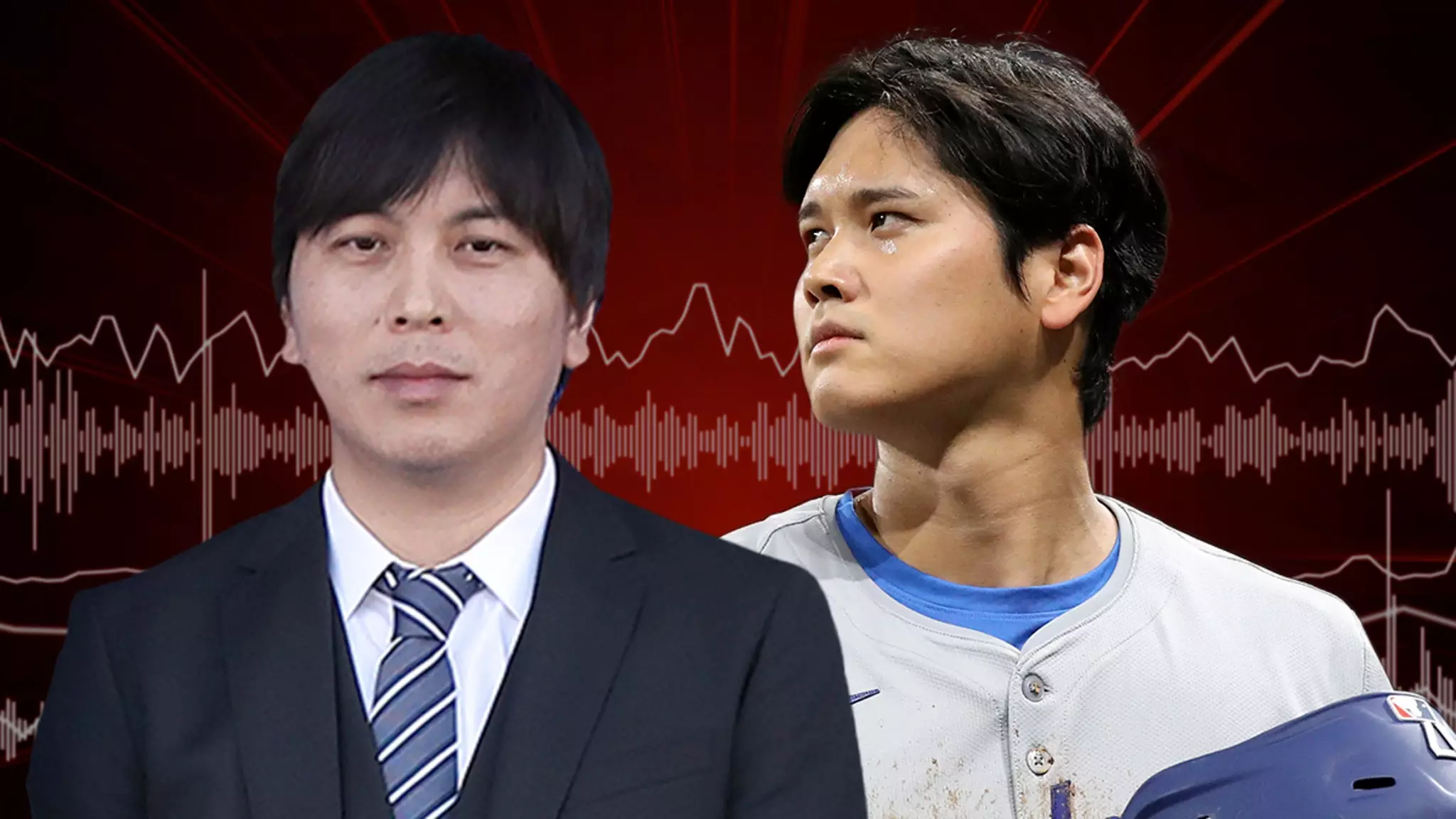In a shocking turn of events, the former interpreter for MLB superstar Shohei Ohtani, Ippei Mizuhara, has been implicated in a serious case of deception and betrayal. The stunning revelation of Mizuhara impersonating Ohtani during a phone call with a bank has raised serious questions about trust and vulnerability, particularly when it comes to financial matters. This disconcerting incident not only highlights Mizuhara’s betrayal but also serves as a cautionary tale for anyone who places their trust in individuals who hold access to their sensitive information.
The scandal came to light following the release of a three-and-a-half-minute phone call audio, made public by federal prosecutors. During this conversation, Mizuhara is heard confidently identifying himself as Shohei Ohtani to a bank representative, as he attempts to wire a staggering $200,000 to a supposed friend for a car loan. The call showcases how Mizuhara skillfully navigates through the bank’s verification process, managing to provide the necessary codes and details to convince the operator of his identity.
This moment is indicative of a larger issue: how easily trust can be manipulated. While Mizuhara’s adeptness in impersonation highlights his deceitful intent, it also points to vulnerabilities within banking security protocols—a gap that could potentially be exploited by other individuals with malicious intent.
As investigations unfolded, it became clear that Mizuhara’s fraudulent actions were not a one-off incident. Federal authorities have revealed that the former interpreter had been siphoning away millions from Ohtani over the years, all to address gambling debts incurred through dealings with a bookie. This betrayal by a trusted aide raises profound concerns about the personal and professional relationships within high-stakes environments such as professional sports.
Mizuhara’s actions extend beyond mere financial theft; they speak to a broader context of failing moral compasses and the consequences of unchecked trust. In a world where athletes often rely on others for financial advice and management, Mizuhara’s case serves as an alarming reminder of the potential dangers that lurk in seemingly trustworthy relationships.
In June, Mizuhara reached a plea agreement with federal prosecutors, admitting to the theft and tax fraud associated with these crimes. The weight of his actions has not gone unnoticed, as the government is advocating for a substantial sentence of 57 months in prison. With a court date set for February 6th, the outcome will not only determine Mizuhara’s fate but also serve as a cautionary tale for others in similar positions of responsibility.
The startling predicament involving Ippei Mizuhara and Shohei Ohtani underscores a critical lesson: Trust is a delicate commodity, particularly in high-pressure environments like professional sports. As the case unfolds, it remains essential for athletes and individuals alike to maintain vigilance when placing their faith in others. Ultimately, this incident is not just about financial theft; it is a stark reminder of the repercussions that can arise when trust is not met with the integrity it deserves.


Leave a Reply